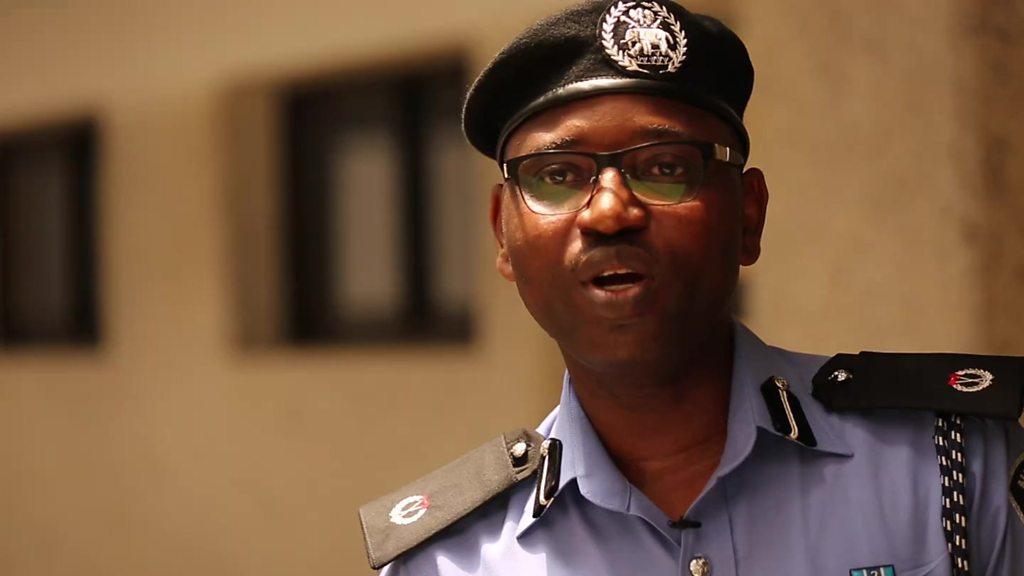End Sars: Hated Nigerian police unit's founder 'feels guilty'
- Published
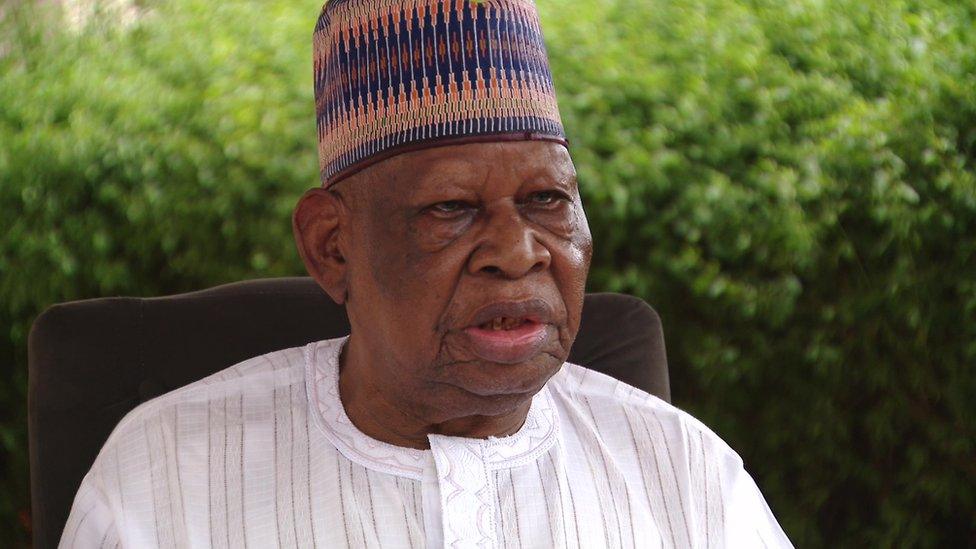
Mr Kwajafa said that Sars had departed from the values he established when he set it up
The man who set up the hated Nigerian police unit, Sars, accused of human rights abuses, has told the BBC that he feels "sad" and "guilty" about what the agency has become.
"Sars of today is not the same Sars I established in 1984," Fulani Kwajafa said.
He said the unit had been "turned into banditry".
Officers from the Special Anti Robbery Squad have been accused of committing extrajudicial killings and torture.
President Muhammadu Buhari announced the disbandment of the agency this week after thousands of Nigerians took to the streets to protest against police brutality.
A new agency called Swat has been formed to take over duties performed by Sars but this has also been rejected by the protesters.
How and why did Nigeria's End Sars protests turn into End Swat protests?
The demonstrators have been using the hashtag #EndSars to push for their cause, which has since been endorsed by global celebrities such as Twitter founder Jack Dorsey, US rapper Kanye West, gospel singer Kirk Franklin, footballers Mesut Ozil and Marcus Rashford and Nigerian superstars Davido and Wizkid.
On Friday, Twitter launched a clenched fist emoji in a show of support for the protests.
Allow X content?
This article contains content provided by X. We ask for your permission before anything is loaded, as they may be using cookies and other technologies. You may want to read X’s cookie policy, external and privacy policy, external before accepting. To view this content choose ‘accept and continue’.

What else did Mr Kwajafa say?
Mr Kwajafa said that the changes might be undermined if there's no "change in mentality".
He added that the code of conduct that he set up when creating Sars had ensured that there was "no incident with members of the public" when he was in charge.
The former police boss accused the agency of "brutality" saying that the officer's acts could have been driven by "greed."
"I always tell my wife that I was sad [that] what I created with good purpose and direction has been turned into banditry," Mr Kwajafa said, adding that he supported the disbandment of the unit "100%".
What is the government doing?
On Thursday, the Nigerian military issued a warning to "subversive elements and trouble makers" , who, it says, had taken advantage of the protests about police brutality.
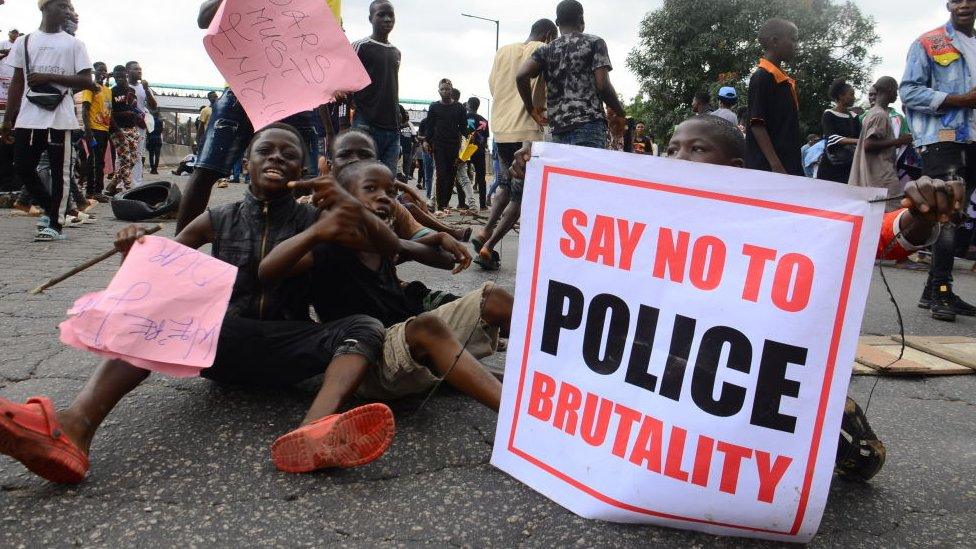
The government has since banned protests in the capital Abuja, citing public safety measures to tackle Covid-19.
Human Rights Watch has however urged the authorities to respect the right to peaceful protest. The US-based rights group also condemned the initial deadly police crackdown on the protesters which Amnesty International said left 10 people dead and hundreds injured.
The governor of Lagos state has said that police officers who allegedly opened fire on protesters there have been arrested and are being tried. But the demonstrators appear unsatisfied, the BBC's Ishaq Khalid reports from Abuja.
As a way of meeting some of the demands of the protesters, the federal government has announced the establishment of judicial panels to investigate past and new police misconduct in all 36 states.
Nigeria's National Human Rights Commission will, however, set up its own independent panel, our reporter says.
- Published13 October 2020
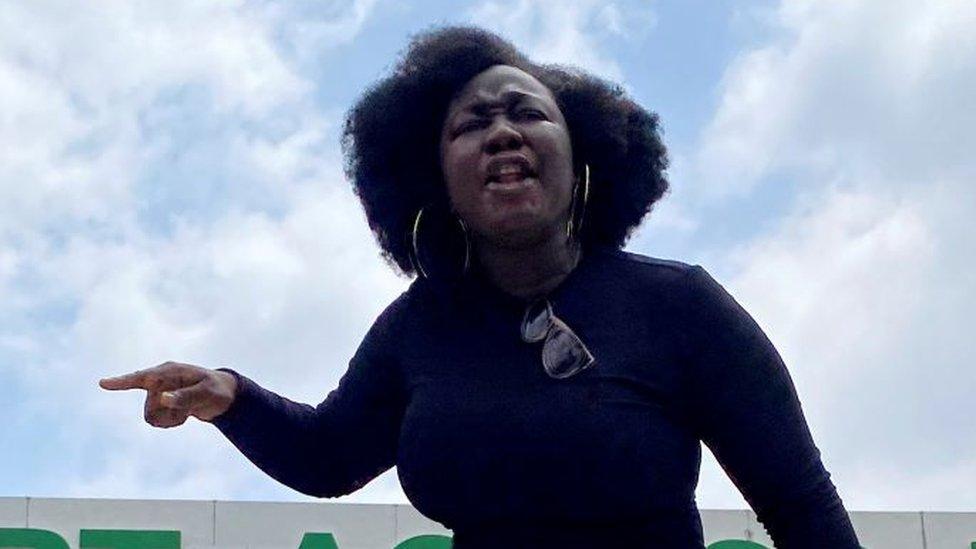
- Published1 October 2020
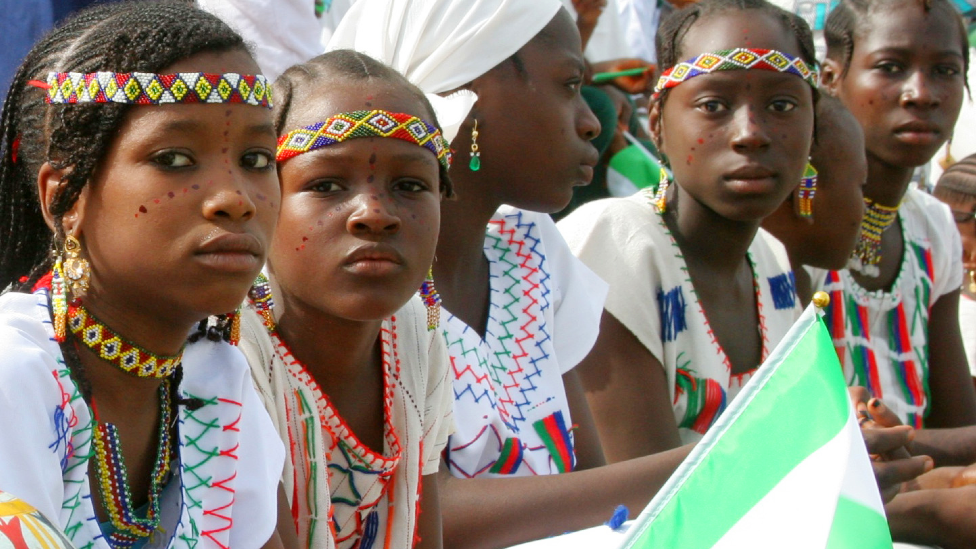
- Published17 November 2016
